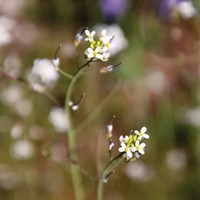Advertisement
Grab your lab coat. Let's get started
Welcome!
Welcome!
Create an account below to get 6 C&EN articles per month, receive newsletters and more - all free.
It seems this is your first time logging in online. Please enter the following information to continue.
As an ACS member you automatically get access to this site. All we need is few more details to create your reading experience.
Not you? Sign in with a different account.
Not you? Sign in with a different account.
ERROR 1
ERROR 1
ERROR 2
ERROR 2
ERROR 2
ERROR 2
ERROR 2
Password and Confirm password must match.
If you have an ACS member number, please enter it here so we can link this account to your membership. (optional)
ERROR 2
ACS values your privacy. By submitting your information, you are gaining access to C&EN and subscribing to our weekly newsletter. We use the information you provide to make your reading experience better, and we will never sell your data to third party members.
Biological Chemistry
Salicylic Acid Shapes Plant Root Microbiome
Microbiology: Leaf defense hormone also plays a gatekeeping role in formation of root microbe community
by Celia Henry Arnaud
July 20, 2015
| A version of this story appeared in
Volume 93, Issue 29
Plants grow in microbially rich environments, but only some of those microbes end up as part of the plant root microbiome. Jeffery L. Dangl of the University of North Carolina, Chapel Hill; Sarah L. Lebeis, now at the University of Tennessee, Knoxville; and coworkers figured out that salicylic acid, a plant defense hormone found in leaves, also plays a role in determining who’s in and who’s out of the root microbial community (Science 2015, DOI: 10.1126/science.aaa8764). The team profiled the root microbes of Arabidopsis thaliana mutants with altered immune systems. In normal plants, it’s common for some root bacterial families to be enriched and others to be depleted relative to the diverse microbial community in the soil. In Arabidopsis mutants with altered salicylic acid production or signaling, some of the bacterial families are even further enriched or depleted, suggesting that salicylic acid helps control the assembly of a normal root microbiome. The researchers don’t know whether this control is a result of salicylic acid’s normal immune function or currently unknown effects on microbes and plant roots. The work “could open new avenues for modulating the root microbiome to enhance crop production and sustainability,” the researchers write.




Join the conversation
Contact the reporter
Submit a Letter to the Editor for publication
Engage with us on Twitter